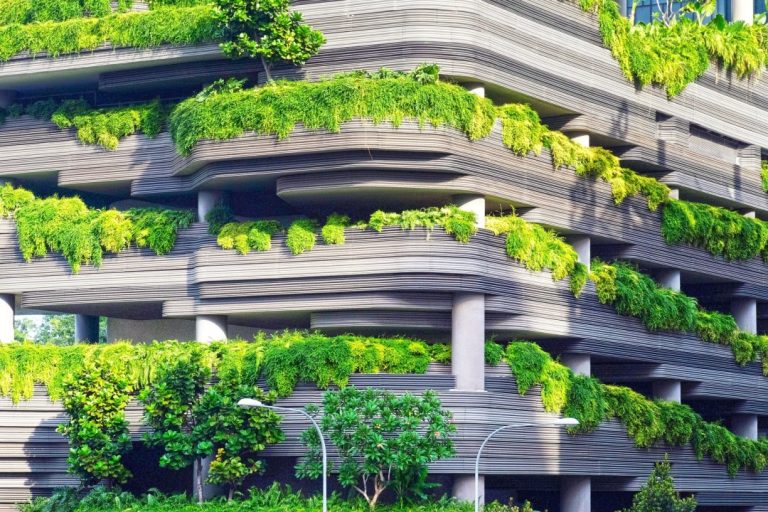Auckland’s residential construction industry is undergoing a significant transformation, driven by the increasing demand for sustainable and eco-friendly building practices. Residential construction companies Auckland are at the forefront of this movement, adopting innovative techniques and materials to reduce their environmental impact. This article explores the sustainable practices shaping Auckland’s residential construction landscape.
The Rise of Green Building Standards
The adoption of green building standards has become a cornerstone of sustainable construction in Auckland. Certifications such as Homestar and Green Star are gaining popularity among residential construction companies. These standards provide a framework for assessing the environmental performance of buildings, promoting energy efficiency, water conservation, and sustainable materials use.
Homestar Certification
Homestar is a comprehensive environmental rating tool specifically designed for residential buildings in New Zealand. It assesses a home’s performance across various criteria, including energy, health, comfort, water, waste, and materials. Homes that achieve a high Homestar rating are not only more environmentally friendly but also more comfortable and cost-effective to live in.
Green Star Certification
Green Star is another rating system that evaluates the sustainability of building projects, including residential constructions. It focuses on key areas such as energy and water efficiency, indoor environmental quality, and sustainable site development. Achieving a Green Star rating signifies a commitment to building environmentally responsible homes.
Energy-Efficient Building Techniques
Energy efficiency is a critical aspect of sustainable construction. Residential construction companies in Auckland are incorporating various techniques to enhance the energy performance of homes.
Passive House Design
Passive House is a rigorous, voluntary standard for energy efficiency in buildings. It results in ultra-low energy buildings that require little energy for heating or cooling. By using high-quality insulation, airtight construction, and energy-efficient windows, Passive House design significantly reduces energy consumption and carbon footprint.
Solar Power Integration
The integration of solar power systems is becoming increasingly common in residential construction projects. Solar panels provide a renewable source of energy, reducing reliance on fossil fuels and lowering greenhouse gas emissions. Many new homes in Auckland are now equipped with solar panels, contributing to a more sustainable energy future.
Sustainable Material Selection
Choosing sustainable materials is crucial for minimizing the environmental impact of construction. Residential construction companies in Auckland are prioritizing the use of eco-friendly materials that are durable, recyclable, and sourced responsibly.
Recycled and Reclaimed Materials
Using recycled and reclaimed materials is a sustainable practice that reduces waste and the demand for new resources. Materials such as reclaimed wood, recycled steel, and recycled concrete are being used in residential construction to create environmentally friendly homes with unique character.
Sustainable Timber
Timber is a renewable resource, and when sourced sustainably, it has a lower environmental impact compared to other building materials. Certification schemes like the Forest Stewardship Council (FSC) ensure that the timber used in construction is harvested responsibly, promoting forest conservation and biodiversity.
Water Conservation Measures
Water conservation is another critical component of sustainable construction. Residential construction companies in Auckland are implementing various measures to reduce water consumption and promote efficient water use.
Rainwater Harvesting Systems
Rainwater harvesting systems collect and store rainwater for non-potable uses such as irrigation, toilet flushing, and laundry. This practice reduces the demand on municipal water supplies and helps homeowners save on water bills.
Low-Flow Fixtures and Appliances
Installing low-flow fixtures and water-efficient appliances is a simple yet effective way to conserve water. These fixtures reduce water usage without compromising performance, contributing to a more sustainable and cost-effective home.
Waste Reduction and Management
Effective waste management practices are essential for sustainable construction. Residential construction companies in Auckland are adopting strategies to minimize waste and promote recycling.
Construction Waste Recycling
Recycling construction waste helps divert materials from landfills and reduces the need for new resources. Many construction companies are setting up on-site recycling programs to sort and recycle materials such as metal, wood, concrete, and drywall.
Prefabrication and Modular Construction
Prefabrication and modular construction techniques involve assembling building components off-site in a controlled environment. This approach reduces waste, enhances quality control, and speeds up the construction process. It also minimizes the environmental impact associated with traditional construction methods.
Conclusion
Sustainable practices are reshaping Auckland’s residential construction industry, with companies leading the charge towards greener, more eco-friendly homes. By adopting green building standards, energy-efficient techniques, sustainable materials, water conservation measures, and effective waste management strategies, residential construction companies in Auckland are contributing to a more sustainable future. As these practices become the norm, Auckland can look forward to a healthier, more environmentally conscious built environment.



